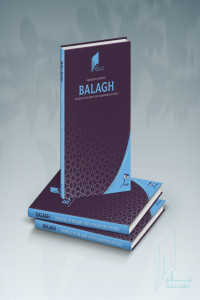Criteria for controlling fatwas in Islamic banks
Criteria for controlling fatwas in Islamic banks
fatwa, Sharia Supervisory Boards, Islamic Banks, Conflicts of Interest, Independence, Collective ijtihad Sharia Compliance Standards,
___
- Al-Baali, Abdul Hamid (2005). Effective Shariah Supervision in Islamic Financial Institutions, Research Presented to the Third World Conference on Islamic Economics, Umm Al-Qura University, Saudi Arabia
- Bayraktar, Muhammad Yunus (2008). Controls for selecting members of Shariah supervisory boards in Islamic financial institutions, a working paper presented to the Seventh Conference of Shariah Bodies of Islamic Financial Institutions, May 27-28, 2008, Kingdom of Bahrain.
- Al-Khelaifi, Radi Mansour, a paper presented to the third conference of Shariah bodies, which was titled: “The Work of Shariah Bodies between Individual Consultation and Institutional Professionalism”, on 9-10 Sha’ban 1424 Corresponding to 5-6 October 2003 AD, Kuwait
- Daoud, Hassan Youssef (1996). Sharia Supervision in Islamic Banks, International Institute of Islamic Thought, Cairo
- Al-Raissouni, Ahmed, Collective Ijtihad, Research Presented to the Symposium “Fatwa and Its Controls” organized by the Fiqh Council of the Muslim World League, Makkah Al-Mukarramah
- Al-Zuhaili, and Heba Mustafa, Collective Ijtihad, Research Presented to the Fatwa Conference and its Regulations, which is organized by the Fiqh Academy of the Muslim World League, Makkah Al-Mukarramah Al-Zaidaniyin, Hiyam Muhammad Abdul-Qader (2013). Shari’a Supervision of Islamic Banks Between Rooting and Application, Dirasat Journal, Shari’a and Law Sciences, University of Jordan
- Al-Salami, Muhammed Mukhtar (2011). The impact of the different fatwas of Shariah bodies, a research presented to the Second Doha Conference (Islamic Banking between Reality and Hope), held in Doha, October 10, 2011.
- Al-Suwailem Sami (2009). Tawarruq and the Organized Tawarruq: pg. 206, a paper presented to the seventeenth session of the Islamic Fiqh Academy, Journal of the Islamic Fiqh Academy
- Al-Shubaili, Youssef bin Abdullah (2009) Sharia Supervision of Banks, a paper presented to the nineteenth session organized by the International Islamic Fiqh Academy, Sharjah, United Arab Emirates.
- Osmani, Muhammad Taqi, Collective Ijtihad, Research Presented to the Conference “The Fatwa and its Regulations”, which was organized by the Fiqh Council of the Muslim World League for the period from January 17-21, Makkah Al-Mukarramah
- Omar, Muhammad Abdel Halim, a paper presented to the third conference of Shariah bodies, which was titled: “The Work of Shariah Bodies between Individual Consultation and Institutional Professionalism”, on 9-10 Sha’ban 1424 corresponding to 5-6 October 2003 AD.
- Issa, Adam Musa (2009). Conflict of interest, research presented to the Eighth Conference of Shariah Bodies, Accounting and Auditing Organization for Financial Institutions, Bahrain.
- Faddad, Al-Ayashi Al-Sadiq (2009). Conflict of interest in the work of Shariah bodies, a paper presented to the 8th Shariah Conference, Accounting and Auditing Organization for Financial Institutions, Bahrain.
- Al-Qattan, Muhammad Amin (2008). Sharia Supervisory Bodies, Research Presented to the Seventh Conference A committee of professors, economists, Shariah experts and bankers, evaluating the work of the Shariah Supervisory Board in Islamic Banks. Muhammad Amin. Shariah Supervisory Bodies Accounting and Auditing Organization for Islamic Financial Institutions (2004), Accounting Standards and Audit and controls for Islamic financial institutions.
- Başlangıç: 2021
- Yayıncı: Karabük Üniversitesi
Exegetical Reflections in Some Verses of The Qur’an: A Light to the Darkness of Ignorance
Yusuf Olawale Owa-onire UTHMAN
Criteria for controlling fatwas in Islamic banks
Amer ALDERSHEWI, Khaled DERSHWI
Qalqalah between Makki and Madani, an analytical statistical study
Moath ALDERSHAWİ, Mohamed Amine HOCİNİ
Aiitmamat KARIEV, Mustafa ALDİRSHAWİ
The Noble Qur’an Being Taught And Managed By Non-Arabic Speakers
